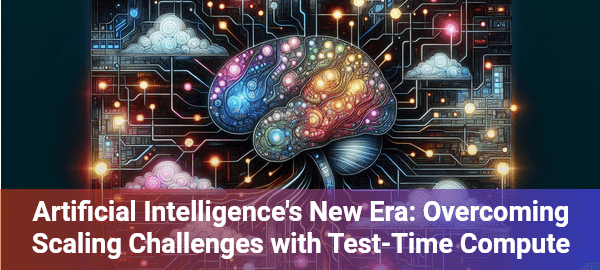Artificial intelligence scaling laws are crumbling faster than expected, revealing surprising technological limits.
In the rapidly evolving landscape of artificial intelligence, a seismic shift is underway. As researchers and tech giants grapple with the limitations of traditional scaling approaches, a new paradigm emerges. Our exploration begins with insights from a recent groundbreaking TechCrunch report, which unveils the challenges facing AI development in understanding model precision and computational constraints.
As a technology enthusiast, I vividly recall debugging complex music generation algorithms, realizing that more computational power doesn’t always translate to better creative output. It’s a humbling lesson that resonates deeply with the current AI scaling dilemma.
Artificial Intelligence’s Scaling Crossroads
AI labs are confronting unprecedented challenges in model development. Researchers at leading institutions like OpenAI and Microsoft are discovering that simply adding more computational resources no longer guarantees exponential performance improvements. The TechCrunch report highlights a critical turning point where traditional scaling strategies are yielding diminishing returns.
Test-time compute emerges as a promising alternative, allowing AI models to spend more time ‘thinking’ through complex problems. Microsoft CEO Satya Nadella describes this as a ‘new scaling law’, suggesting a fundamental reimagining of AI model development strategies. The approach involves giving AI systems more computational resources during problem-solving, rather than just during initial training.
Interestingly, early experiments demonstrate significant potential. MIT researchers have shown that providing AI models additional inference time can dramatically improve reasoning capabilities. This shift represents more than a technical adjustment—it’s a philosophical transformation in how we conceptualize artificial intelligence’s problem-solving potential.
Artificial Intelligence Inference Optimization Platform
Develop a cloud-based service that provides specialized test-time computational resources for AI models. By offering flexible, pay-per-use inference acceleration, the platform would help companies optimize their AI’s reasoning capabilities without massive infrastructure investments. Revenue would come from tiered computational packages, with pricing based on inference complexity and duration.
Navigating the AI Frontier: Our Collaborative Journey
As we stand at this technological crossroads, one thing becomes crystal clear: the future of artificial intelligence isn’t about brute-force computation, but intelligent, nuanced problem-solving. Are you ready to be part of this revolutionary transition? Share your thoughts, insights, and predictions in the comments below. Together, we’ll decode the next chapter of AI’s remarkable evolution.
AI Scaling FAQ
Q: What are AI scaling laws?
A: Strategies for improving AI model performance by increasing computational resources and training data.
Q: Why are current scaling methods showing diminishing returns?
A: More compute and data no longer guarantee proportional improvements in AI capabilities.
Q: What is test-time compute?
A: A new approach allowing AI more time to process and solve complex problems during inference.
